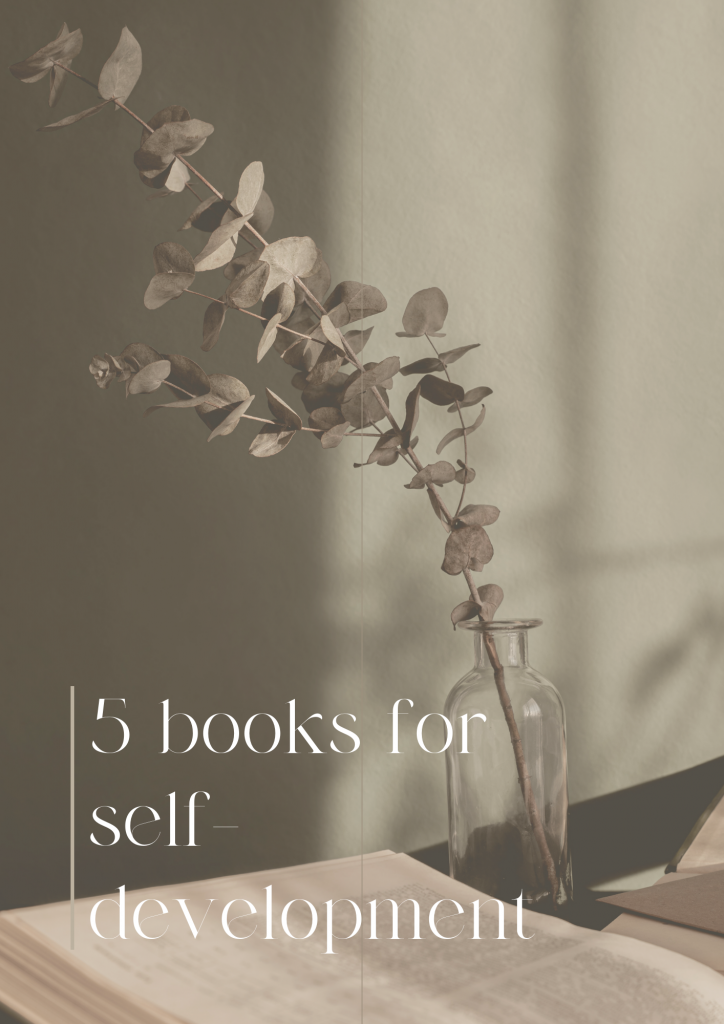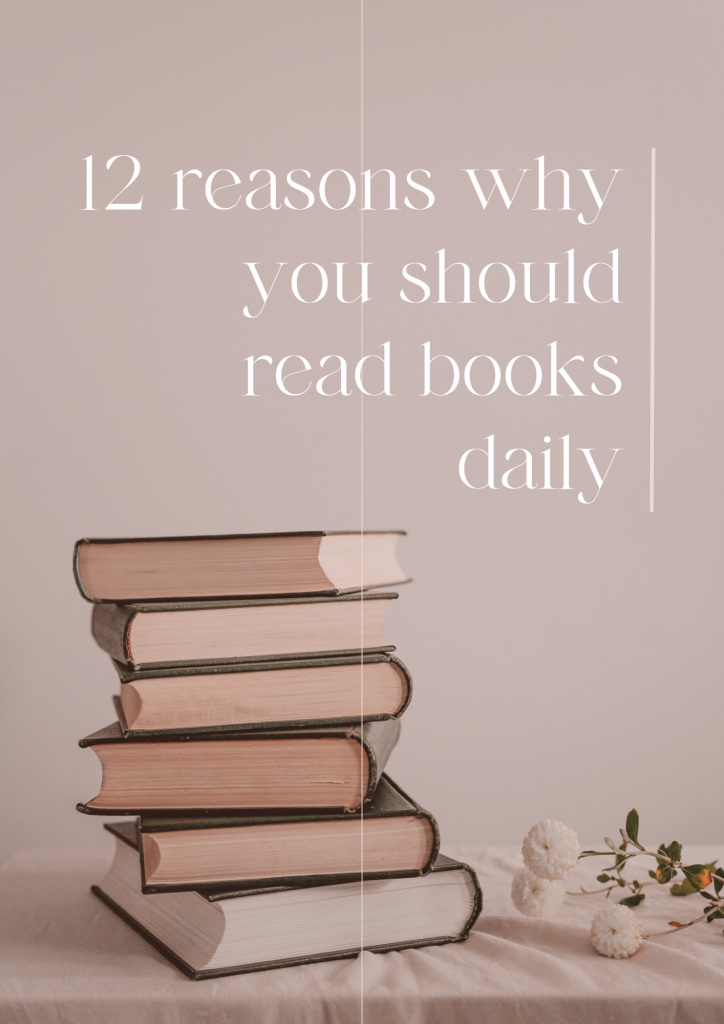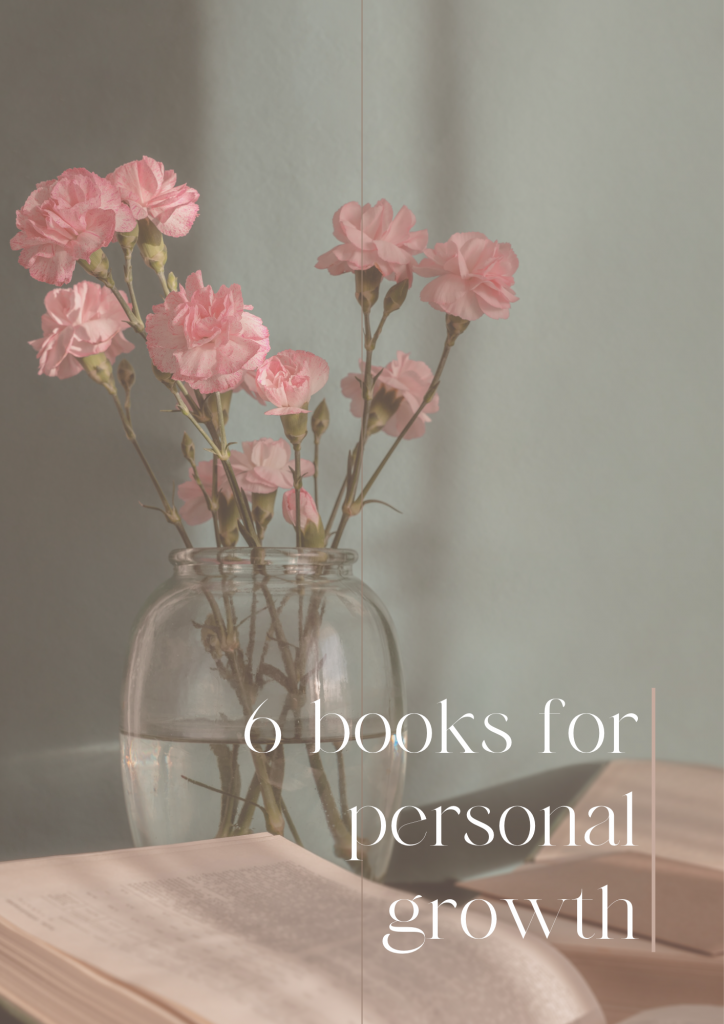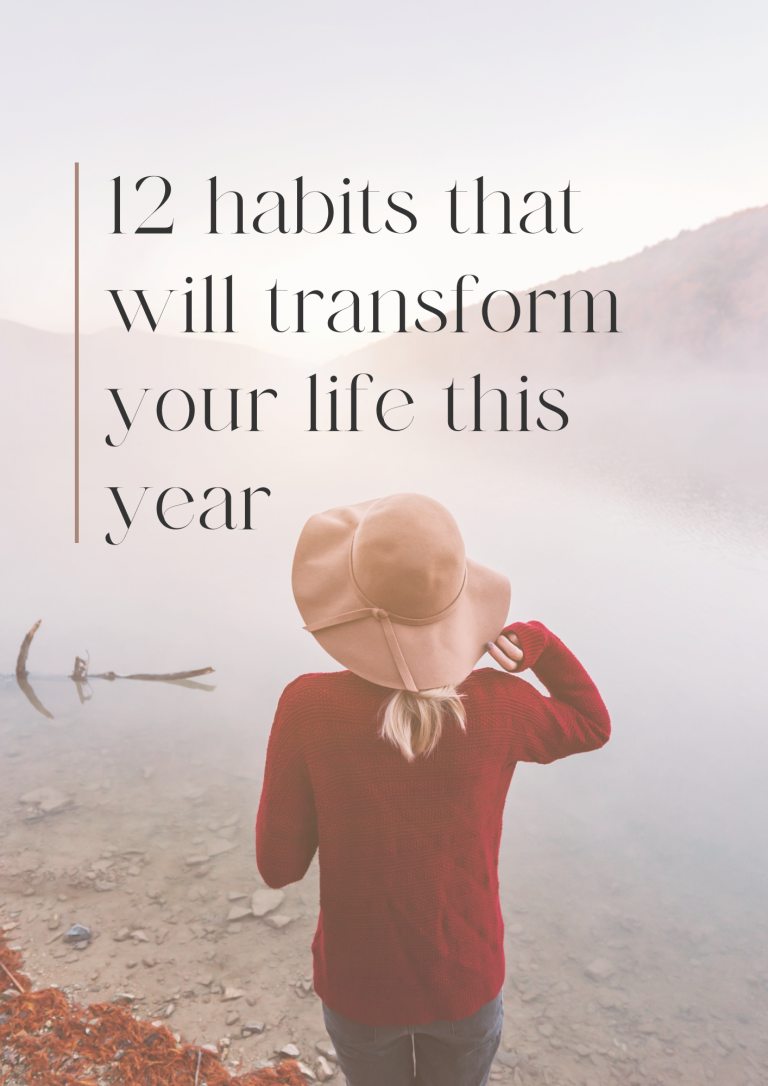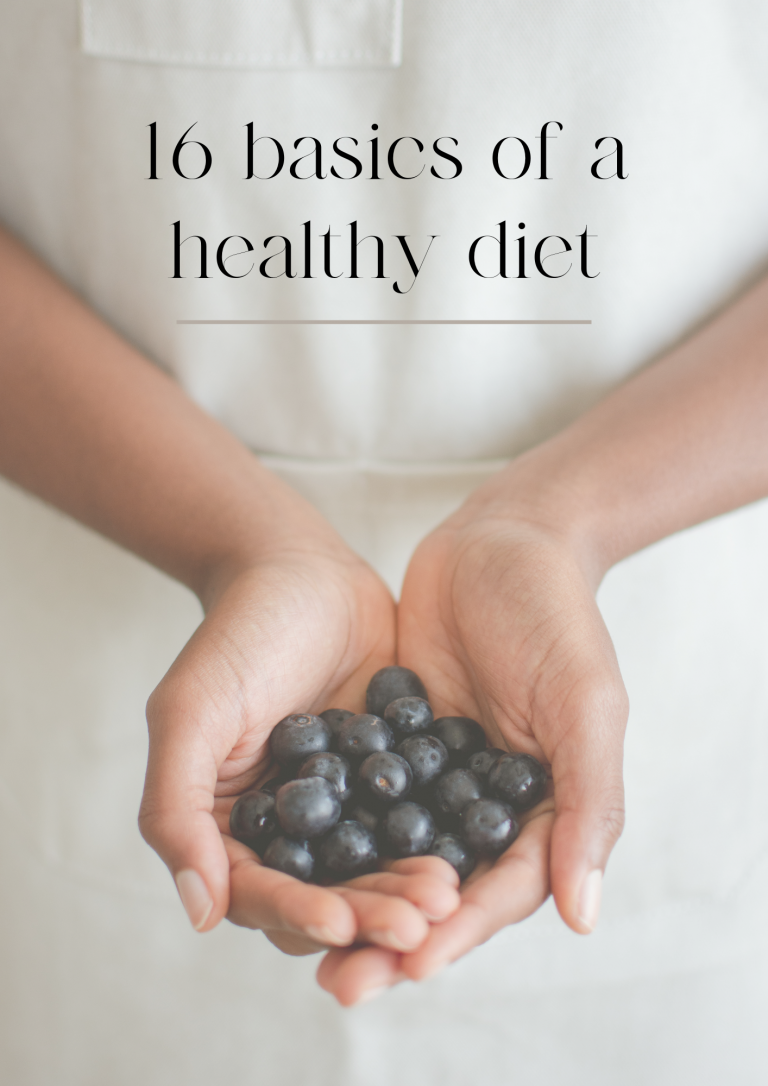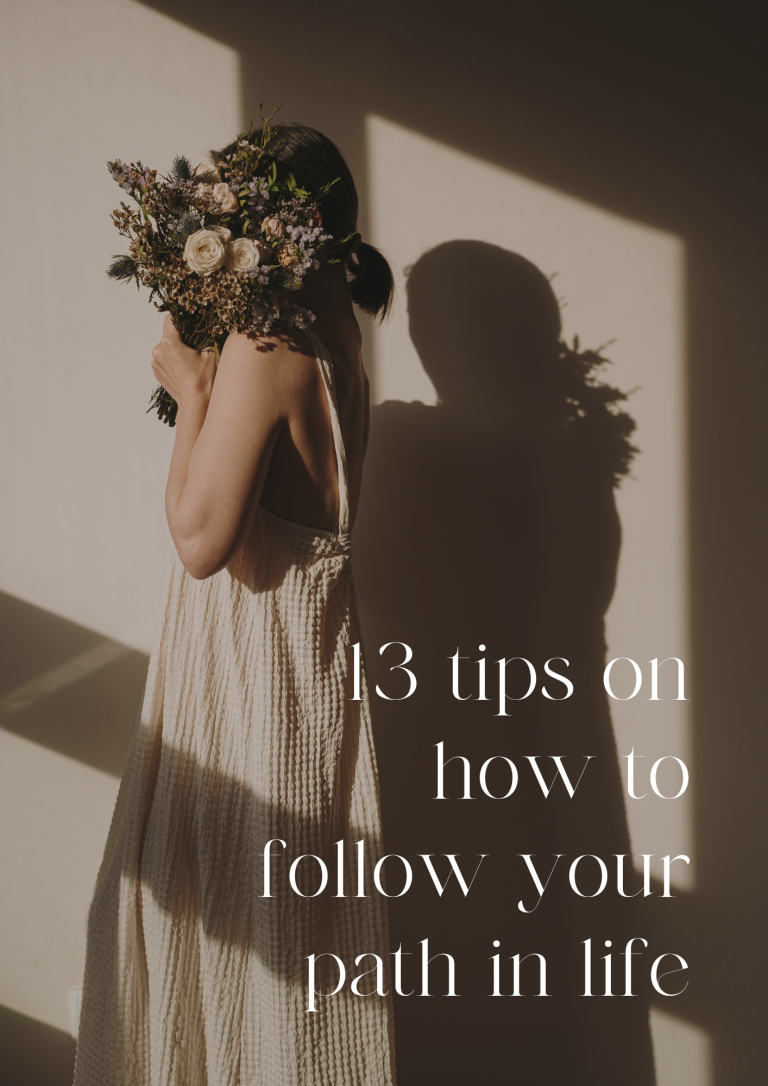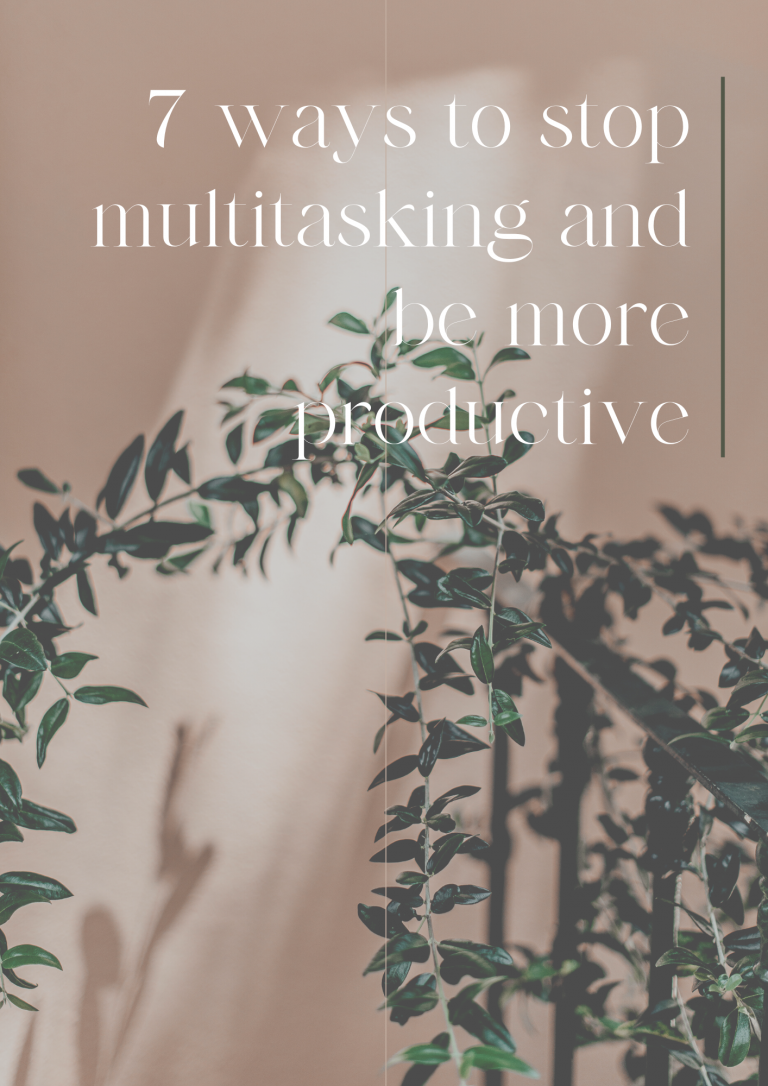7 Tips on how to spend less money on things you don’t need
“This post may contain affiliate links. If you decide to purchase through my links, I will get a small commission at no extra cost to you. Read the full disclosure here. “
Today’s topic is all about spending money, specifically how to spend less money. Or how to spend more money on the things you need and truly want and less on the things you don’t need in your life.
Handling and spending money is a highly personal issue; Even though discussing money can feel awkward, it’s a crucial step towards building our financial knowledge and fostering a healthy relationship with our finances.
We all have a certain amount of money available, which depends on our profession and many other things. What’s the same for anyone of us is the transparency of money. It doesn’t matter what kind of money you have. For instance, you can use your card or pay by cash, using coins and bills, but if two people have the same amount of money, they can get the same amount of items or services.
Therefore, not the money itself is responsible for what we consume daily. It’s on us. We are the critical factor that decides how we use the money we have at hand. And if you look around you, I bet you cannot find two individuals that consume in the same way, you included. Similar, yes, but we all have slightly different habits when it comes to spending money.
And with these various money habits also comes the struggle with it.
Due to uncountable marketing strategies, including typical TV adverts, social media marketing, brand or product marketing, and so much more, we, as consumers, are bombarded daily with the most aggressive and manipulating marketing strategies.
So, it’s unsurprising that we can be confused over the uncountable opportunities to spend our money. But all marketing strategies have in common that we, as consumers, should spend the money we earn.
And that’s precisely how money works. It was initially a means of exchange. You have money from whatever source and exchange it for something you want, need or like.
But with our fast-living world, trends come and go daily, making it even more confusing to decide what products or services we should spend our money on and what trends we better let pass by.
Today’s blog post will help you to bring light into the darkness of money-spending behaviour with 7 practical tips on how to spend less money on things you don’t need.
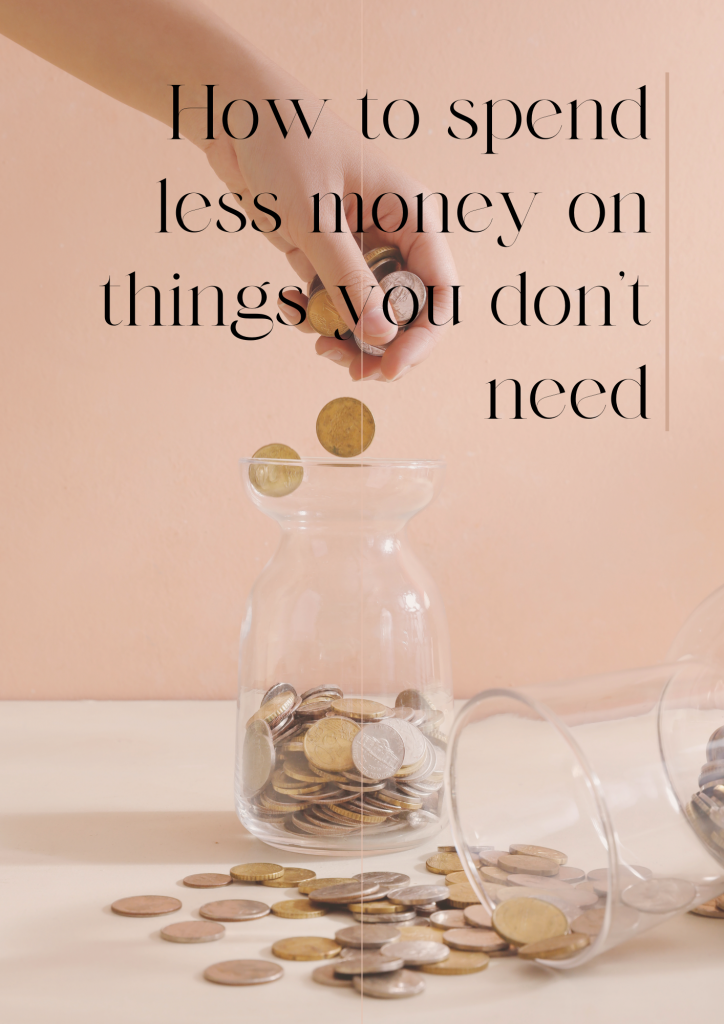
1. Make shopping lists
Whenever you intend to spend some money, going in prepared is priceless. The reason for this is caused in the fact that having a plan, in the first place, can help you make better decisions when it comes to spontaneous purchases.
If every time you intend to spend money, make a proper inventory of what you already have at home and what you can avoid spending money on. This habit will get you in a mood of control.
For humans to make proper decisions in life, not only when it comes to money but in every area of life, it’s crucial to have as much information as possible to make the decisions you will be happy with forever.
Having a shopping list on hand does not mean that you religiously have to stick to your list, but it gives you a proper overview of the actual things you should spend your money on.
Also, in the end, it can save your home from a future vital declutter if you make intentional purchases in the first place. This does work for any area in your life where you spend your money, which means groceries, fashion items, cosmetics, home décor, etc.
Having a list in mind can be exceptionally beneficial for your wallet and calming for your mind.
This way, you are well prepared for the spending money situation, and you know what you should spend your money on and can make proper decisions on any extra purchases you want to make.
2. Wait 3 days before you purchase something
This tip is for any extra items you want to buy for yourself.
It’s valid for any products you don’t need but would be happy to possess. Usually, these items are available for extended periods, so no stressful situation can occur while letting the thought of purchasing this item sink into your mind.
Sometimes it can happen that we only want an item desperately because these thoughts of possession are the conclusion of efficient and intentional marketing. If you think about the product long enough, you will likely conclude that you can live happily without that item.
Just give this tip a try, and the next time you want to empty your online shopping basket, wait 3 days to give yourself the time to think about if you need that item in your life or if it’s just originated in a feeling of wanting.
3. Check your subscriptions and memberships
Subscriptions and membership can be a tricky topic. Once you confirm that you want to be a member of a specific program, payments go on automatically. Hence, you usually don’t have to pay actively every month to stay in the program.
And more often, it can happen that after a while of using the specific program, we forget about it and use it rarely. But the payments go further punctually every single month. This way, you spend your money unintentionally on something you don’t need and use anymore.
Therefore, check your subscriptions and memberships regularly to avoid unnecessary payments for programs you don’t need and use.
But the same thought can be used backwards.
Sometimes, we spend a decent amount on things we could get cheaper through a subscription or membership.
The best example would be books. If you read a lot but still buy every book in-store or order online, you not only spend a decent amount of your hard-earned money, but you also can quickly run out of space for the high amounts of books stored in your home.
There could come a membership in handy.
Regarding book memberships: Have you heard of Kindle Unlimited?
Kindle Unlimited is a membership format provided by Amazon, allowing you to access over one million books at your fingertips. With Kindle Unlimited, you can read as many e-books as you want from any device, giving you maximum flexibility for indulging your love of reading.
Are you passionate about reading? Do you love the feeling of getting lost in a good book? If reading books is your hobby and passion and you describe yourself as a real bookworm, Kindle Unlimited is perfect.
If you’re ready to take your reading game to the next level, start with Kindle Unlimited today by clicking the link for all the information.
4. Make check-ups with your gut feeling and intuition before any purchase
Chances are high that you’ve never heard of this kind of tip. I know it’s unconventional and far from the stiff strategies you encounter on the internet and elsewhere.
My number one pro tip for spending less money on things you don’t need is to have check-ups with your inner gut feeling – it’s also called intuition – every time you want to spend some money.
How does it work?
When you decide on one product to purchase, you take one moment to reflect on your inner gut feeling. Take one step back and focus on your feelings when considering buying the product.
Ask yourself some questions:
- Do you feel good about buying the item?
- Do you want this?
- Do you feel light when thinking you possess the item in question?
- Do you want this?
- Do you think about the money you will spend rather than about the product you are about to get to hold in your hands?
- Do you want this?
When you can answer all these questions with a yes, that’s a great indicator! Go for the item you want to purchase! You are way more likely to spend your money with a great feeling, and you will likely love the item you will get instead.
But if you answer one or more of the above questions with a no or an I don’t know, go back to tip number 2 and wait a few days before you come back and question yourself again.
Being intentional with your spending behaviour is crucial.
If you want to value yourself and the money you earn and spend, being very intentional with your spending behaviour is crucial. Because where is the sense of spending money if you feel regretful and bad about your decisions one moment after you spent it on something?
This creates tension within your relationship with yourself and money. And if you want to learn how to spend less money on things you don’t need, it’s crucial that you learn to have regular check-ups with yourself.
This way, you can learn to trust your gut feeling, and having trust in yourself will strengthen your relationship with you and the money you earn and spend.
These inner check-ups are beneficial when you are used to ignoring the emotions you feel while spending money occasionally. Going into the inner monologue with yourself, you confront yourself with the decisions you make when spending money.
And confronting yourself means taking responsibility, and taking responsibility for your actions will result in better decisions when it comes to spending money.
5. Avoid eating out frequently and, instead, cook at home
Regarding food, there are many possibilities where you can spend less money on things you don’t need. We’re talking about eating out.
Of course, eating out at a lovely restaurant with your loved ones means quality time. And that’s important for stable and loving relationships.
But if you tend to eat out just for convenience, there is much money you could save if you cook your meals at home instead of eating out regularly.
Cooking at home can be healthier.
Not only is it cheaper, and you will save much money on buying groceries instead of ordering meals at a restaurant, but you also know exactly what your meal contains when cooking it yourself.
This way, you can also take specific dietary preferences into action and create meals that fit your diet perfectly.
For some people cooking at home is not sustainable. I get it. But again, if you’re willing to spend your money intentionally on the things you want and spend less on things you don’t need, you will also find solutions for this matter.
Remember that you can save lots of money on daily food. Be intentional about what you spend your money on. Especially when it comes to nutrition, it’s not only a money factor to consider, but the food you consume daily has a massive influence on your overall well-being.
Therefore, it’s best to be highly intentional when spending your money on the food you consume daily.
6. Use cash instead of credit cards to limit your spending
When using cash instead of credit cards, you are much more in control over how much money you spend and for what you use your hard-earned money. Because using cash, you see your money with your eyeballs, making it much more accurate since you can watch your money being spent.
In comparison, with a credit card, you hold your card on a payment device, and that’s it. There is no visual aspect you could track. Therefore, it’s easy to lose an overview when using credit cards.
And since it’s easier to use a credit card, spending money with it is much more convenient, and therefore, it’s more likely for you to lose control over your spending behaviour.
Using cash for all your payments makes it much more accurate when spending money on the things you want but don’t need.
7. Practice gratitude and focus on what you already have
Suppose you’ve been around Gloriously Her for a while. In that case, you already know that I’m a massive believer in practising gratitude to maintain a much more fulfilling and happier lifestyle and create a more intentional life for yourself.
You choose intentionality when you switch your focus from a demanding and lacking perspective to a grateful one. This is because by practising gratitude, you intentionally focus on everything you can be grateful for.
This can be simple things, like your morning coffee or an exciting book you’re currently reading, to more unique and profound aspects like feeling gratitude for your family and friends, for being alive or your connection to the universe.
Recognise the abundance in your life.
By practising gratitude, you train yourself to be grateful for everything you already have. This way, you shift your focus to recognise the abundance in your life.
You will be less likely to see everything you don’t have but want since your brain focuses on everything you have.
And when you realise how rich and abundant your life already is, you will start spending less money on things you don’t need because you will then realise that you do not need to spend your money on things you don’t need.
By practising gratitude, you will also conclude that there are fewer things you still want and truly need. Because you will see the riches around you, this focus will create an environment where you can let go of the necessity for consuming unnecessary things.
Improving your relationship with money and creating an environment where you feel safe enough to appreciate all the things you already have in your life has a lot to do with being at peace with your inner world and creating a life filled with intentional thoughts and actions.
The moment you realise that you are in control over how you spend your money and that it’s fun to start spending your money on the things that truly benefit your life, your relationship with money can evolve.
But as always, be kind to yourself while improving your spending behaviour. You’re doing fine. And it’s unrealistic to expect yourself to act like a pro if you’ve just started.
Be gentle with yourself no matter what.
The more you can see yourself as a student still learning all the skills, the more gently you can treat yourself. And ultimately, you will make better decisions by spending less money on things you don’t need.
Until next time,
Keep evolving into your most glorious self!


